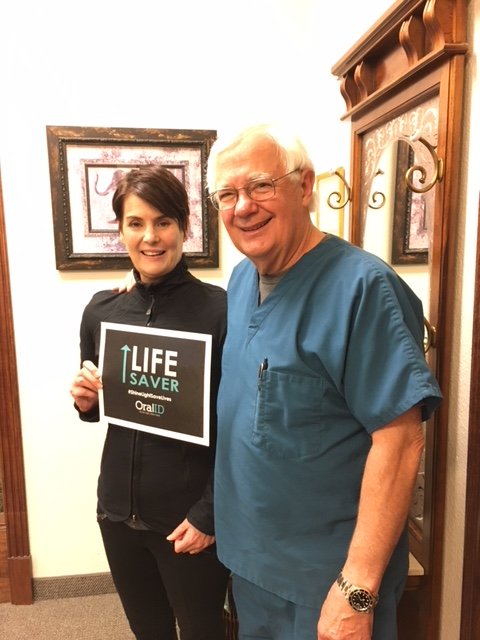Missing teeth can affect more than just your appearance—they can impact your ability to eat, speak, and feel confident. At Wilhite Plano Dentist, we offer custom dentures designed to restore both the function and aesthetics of your smile. Whether you need full or partial dentures, our team provides personalized care to ensure a comfortable and natural fit.
How Do Dentures Work?
Dentures are a prosthetic device used to replace missing teeth. Complete dentures are used for people who have no remaining teeth left in their mouths. Partial dentures are for people who have lost several teeth in a row. Dentures are removable and held in place with a special adhesive. This allows for proper cleaning and care. However, some prefer to have dental implants that allow their dentures to have more stability in their mouth. These dental implants create a no-slip solution for dentures, which some people prefer. Dr. Wilhite is happy to assist you with any of your denture needs.

Proper Denture Care
Taking care of your dentures ensures their longevity and maintains your oral health:
- Remove and clean your dentures daily using a soft brush and mild cleanser.
- Keep your dentures moist when not in use to maintain their shape.
- Schedule regular dental check-ups to monitor the health of your gums and the fit of your dentures.
Adjusting to Your New Dentures
It’s normal to experience some discomfort while adjusting to new dentures. Dr. Wilhite and his team provide guidance on how to ease the transition, including:
- Practicing speaking and eating with soft foods
- Using a denture adhesive for added stability
- Scheduling follow-up appointments to adjust the fit as needed
Types of Dentures We Offer
1. Full Dentures
Full dentures are used when all teeth in the upper or lower arch are missing. They are crafted to provide a natural look and a secure fit. Modern advancements in denture technology allow for greater comfort and improved function.
2. Partial Dentures
If you have some remaining healthy teeth, partial dentures are an excellent option. They consist of replacement teeth attached to a metal or acrylic base and are designed to blend seamlessly with your natural teeth.
3. Implant-Supported Dentures
For increased stability and a more natural feel, implant-supported dentures are anchored directly to dental implants. This option prevents slipping and provides greater chewing power and comfort.
Benefits of Custom Dentures
Dentures are more than just a cosmetic solution—they improve your overall oral function and health. Some key benefits include:
- Restored chewing and speaking ability
- Enhanced facial structure by preventing sagging
- Increased confidence with a natural-looking smile
- Long-lasting results with proper care



Schedule Your Denture Consultation Today
Ready to restore your smile? Contact Wilhite Plano Dentist to schedule a consultation and explore your denture options. Our team is here to provide expert guidance and ensure you feel comfortable with your new smile.
Call us at (972) 964-3774 or contact us online to learn more about our denture services. Experience the confidence that comes with a complete, healthy smile!

